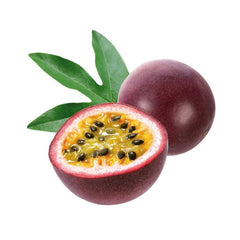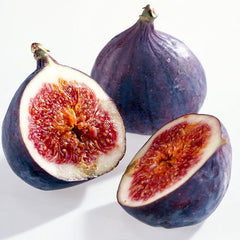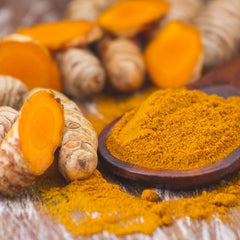Are Oriental Perfumes Controversial?
Click For Affordable Inspired Perfume Alternatives
Perfumes have long been an integral part of cultural expression, personal identity, and luxury lifestyle across the globe. Among the myriad fragrance categories, Oriental perfumes stand out due to their rich, exotic compositions and historical significance. However, over the years, these alluring scents have sometimes sparked debates and controversies related to cultural representation, stereotypes, and commercial practices. In this article, we explore whether Oriental perfumes are controversial, examining their origins, cultural implications, and the ongoing conversations surrounding them.
Are Oriental Perfumes Controversial?
The Origins and Definition of Oriental Perfumes
Oriental perfumes, also known as "amber" or "spicy" fragrances, originated from ancient trade routes and civilizations in the Middle East, Asia, and North Africa. These fragrances are characterized by warm, sensual notes such as vanilla, amber, musk, spices, and resins. Historically, they symbolized luxury, mystique, and opulence, often associated with royal courts and aristocracy.
In the modern perfume industry, the term "Oriental" is used to describe a specific scent family that combines sweet, spicy, and woody notes to evoke a sense of exoticism and allure. Fragrances like Yves Saint Laurent's Opium, Guerlain's Shalimar, and Tom Ford's Black Orchid are iconic examples of Oriental perfumes.
The Cultural Significance and Stereotypes
While Oriental perfumes celebrate the rich heritage of Eastern craftsmanship and aromatic traditions, they have also been criticized for perpetuating stereotypes and oversimplified portrayals of Eastern cultures. Some argue that these fragrances often rely on clichés of mysticism, sensuality, and opulence, which can reduce complex cultures to a set of stereotypes.
- Portrayal of Eastern culture as mysterious and exotic
- Use of ingredients and motifs that may be seen as stereotypical or caricatured
- Marketing strategies that evoke Oriental imagery to sell luxury products
This commercialization can lead to misrepresentation and cultural insensitivity, prompting discussions about cultural appropriation and ethical marketing practices in the fragrance industry.
Ethical Concerns and Cultural Appropriation
One of the main sources of controversy surrounding Oriental perfumes is the issue of cultural appropriation. Critics argue that Western brands often adopt Eastern motifs, ingredients, and aesthetics without proper acknowledgment or respect for their cultural origins.
- Use of traditional ingredients like oud, saffron, or jasmine without understanding their cultural roots
- Repackaging or rebranding cultural symbols for commercial appeal
- Potential exploitation of cultural heritage for profit
However, defenders contend that celebrating and sharing diverse fragrances can promote cross-cultural appreciation when done thoughtfully and respectfully. The key lies in transparency, cultural sensitivity, and collaboration with artisans and communities from the regions represented.
How the Industry is Responding
In recent years, the perfume industry has become increasingly aware of the need for cultural sensitivity and ethical practices. Many brands now emphasize transparency about ingredients, sourcing, and inspiration behind their fragrances. Some initiatives include:
- Collaborations with Middle Eastern perfumers and artisans to ensure authentic representations
- Educational campaigns about the cultural significance of ingredients like oud or amber
- Creating fragrances that honor cultural heritage rather than relying solely on stereotypes
Furthermore, some brands are moving away from the broad "Oriental" label altogether, opting instead for more specific descriptors that highlight the unique origins of their scents.
Are Oriental Perfumes Still Popular Despite Controversy?
Despite the debates, Oriental perfumes continue to be highly popular among consumers worldwide. Their rich, warm qualities appeal to those seeking bold, sensual fragrances that evoke luxury and sophistication. Many perfumers see these scents as timeless and versatile, suitable for various occasions.
Moreover, the industry’s shift towards more culturally aware and ethically produced fragrances has helped mitigate some concerns. Consumers are increasingly seeking out brands that demonstrate respect for cultural traditions and promote fair practices.
Balancing Appreciation and Cultural Sensitivity
The conversation around Oriental perfumes highlights the importance of balancing appreciation for cultural heritage with respect for its origins. As consumers and industry professionals become more informed, the focus shifts toward responsible marketing, authentic storytelling, and inclusive representation.
- Supporting brands that collaborate ethically with cultural artisans
- Seeking fragrances that are transparent about their ingredients and inspiration
- Being mindful of cultural stereotypes and avoiding exoticism for commercial gain
In essence, Oriental perfumes are not inherently controversial; rather, the dialogue revolves around how they are created, marketed, and perceived in a global context. Embracing diversity and promoting authentic cultural expression can transform these fragrances from sources of controversy into symbols of mutual appreciation.
Conclusion: Embracing Cultural Respect in Fragrance
Oriental perfumes have a storied history rooted in the rich traditions of Eastern cultures. While they have faced criticism for perpetuating stereotypes and cultural insensitivity, the industry is gradually evolving towards more respectful and authentic representations. Consumers play a vital role in this shift by supporting brands that prioritize cultural integrity and ethical practices.
Ultimately, the question of whether Oriental perfumes are controversial depends on how they are crafted, marketed, and embraced. With conscious efforts and a respectful approach, these fragrances can continue to celebrate cultural diversity while fostering understanding and appreciation across borders.
Buy Perfumes - Best Online Retailers
Click For Affordable Inspired Perfume Alternatives
Click For The Best Niche Perfumes & Decants
Pheromone Perfumes - Confidence, Attraction & Appeal - Click For More
Home Fragrances & Candle Warmers - Click To Scent Up Your Spaces Today!



